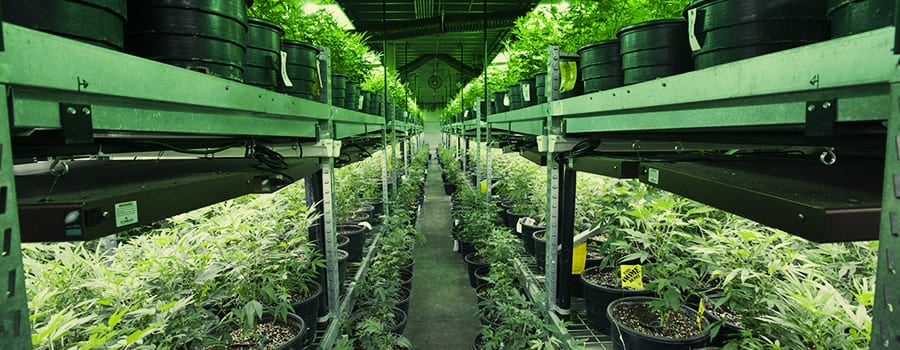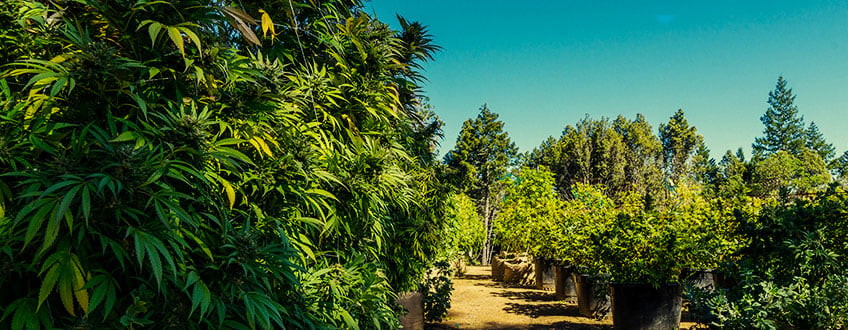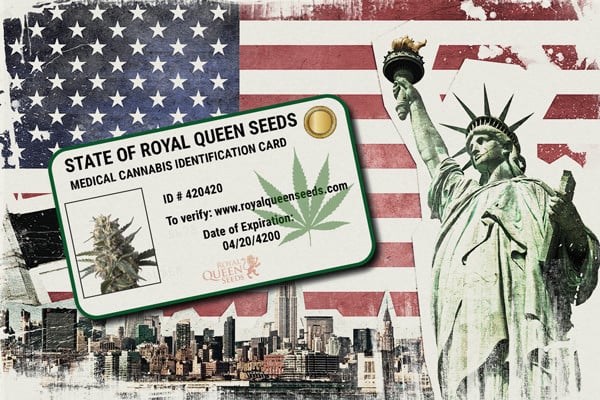.

What Does It Take To Get A Licence To Grow Or Sell Cannabis?
Thinking about breaking into the cannabis industry? If you want to become a commercial grower, or are toying with the idea of opening a dispensary, just know you will face a mountain of requirements and fees. Learn what to expect if you want to get a licence to sell cannabis in America, Canada, and Europe.
The cannabis industry is booming. New cannabis companies and retail locations are opening at a staggering rate in many places. It may seem like an easy industry to crack into, but the reality is very different. In short: it takes a whole lot to obtain a licence to sell cannabis, and we’re not just referring to the very high fees involved. Below, we discuss the main factors one should consider if thinking about applying for a commercial cannabis licence in the US, Canada, and Europe.
FACTORS TO CONSIDER IF YOU WANT TO GET INTO THE CANNA-BUSINESS
KNOW YOUR LOCAL LAWS AND REGULATIONS
No matter if you want to get a licence to grow commercially or open a dispensary, the first port of call is to consider legality. Given the “youth” of the legal cannabis industry, the barrier to entry is actually much higher, and the requirements more steep. As such, do your due diligence regarding local laws and regulations. Legal markets vary widely, potentially making or breaking an individual’s success in this endeavour.
Background checks are often required, not just for the owner of a dispensary, for example, but for all employees and investors as well. In some places, such as in Canada, growing medical cannabis commercially will require that everyone in charge has valid security clearance. So, if you have a criminal background, your dreams of hitting it big as a licenced medical grower may be crushed before they can even take off.
Then there’s the complex grey areas to navigate; “tolerated” or “decriminalised” doesn’t mean that marijuana is legal. And if it isn’t legal, or if your local laws are not clear and your city hasn’t passed anything that explicitly allows the cultivation of recreational cannabis, this means a dispensary could be shut down at any given moment by the government. You don’t want to risk investing in something that is still illegal in the eyes of the law.
Not only should you make yourself aware of the current laws, but prospective ones too. This young industry has a lot of proposed legislation soon to be enacted, so major changes in regulations are likely to follow suit. Getting ahead of the game by researching upcoming developments will only make the process smoother.
Likewise, be aware that some places, like the US for example, have conflicting cannabis laws that differ depending on state versus federal purview. On the federal level, cannabis is still illegal and a Schedule I drug in the US; in individual states, legal cannabis is thriving.
So first and foremost, make sure to prioritise research. Even better: consult with an experienced lawyer that can advise you.
TIME TO MAKE A BUSINESS PLAN
On paper, there’s nothing more appealing than the prospect of turning a hobby into a business. But with several cannabis niches becoming ultra-saturated (such as the CBD market), a lot of people getting into the field are just as quickly floundering—not just because of the steep requirements and legal uncertainties, but due to a lack of professional experience and know-how.
If you want to be successful, you need to be professional about it. A solid business plan is a great first step in that direction. A comprehensive plan will help in several ways. To start, it shows that you’re serious about your business and that you understand the complexity of what you’re getting into. Moreover, it acts as a personal roadmap to keep things organised and somewhat under control, especially in the early stages. Lastly, a business plan is key when looking to get funding from investors. They want to see that they will eventually get a return on their investment.

YOU NEED STARTING CAPITAL
It’s a fact of life; you need capital to start a business. Your business plan should state how you will access this capital, and for what it will be used. This can be one of the biggest challenges as you will not only require funding in the range of $200,000–250,000 as a bare minimum, but are unlikely to secure a loan from a bank. You can thank the legal grey areas for this. Therefore, you need to secure funding via other methods, e.g. investors or private capital.
Your business plan should also list the prospective running costs for your marijuana business. This will include yearly licencing fees, rental costs, employee salaries, transportation costs, and any other expenses.
FIND A SUITABLE PROPERTY
Not only are there steep licencing requirements for fledgling canna-business owners, but also operational requirements. To operate as a dispensary in California, you can’t simply rent a space wherever you’d like. There are strict rules about how far cannabis retail locations must be from schools, churches, and residential zones.
Likewise, a high level of security needs to be established for any type of property where cannabis is being stored. For instance, there are some requirements that dictate the walls must be a certain thickness, along with other security specifics that add to the overall cost and energy involved with operating a business. The Canadian commercial cultivation application requires detailed descriptions of the site’s floor plans and security measures in order to be accepted.
APPLICATION AND LICENCING FEES
Aside from the fees of starting and running your business, there are the actual licencing costs you will need to take care of outright. This, in addition to the legal hurdles involved, is often enough to deter many would-be shop owners. In some places, the application fee to get your licence can exceed tens of thousands of dollars. Add to this yearly renewal fees to keep your licence, and it’s clear how quickly the money can be sucked out of your wallet.
OBTAINING CANNABIS CULTIVATION LICENCES IN AMERICA, CANADA, AND EUROPE
The above represents a snapshot of the different factors you’ll need to consider on a more or less global basis. Now, we’ll shed some light on the specifics of becoming licenced in America, Canada, and Europe, to help give you an idea of what things look like in your neck of the woods.
UNITED STATES
In the United States, laws and regulations for commercial cultivation vary by state, by county, and even by city. So before you start drawing up plans for opening a dispensary or some large-scale medical cannabis operation, make sure you know the laws and rules that apply to you.
The fees for licences will also vary greatly. For example, in Washington state, application fees for a licence are only $250, with annual licence fees from $1,480. This is a bargain compared to most other states. In Illinois, the application fee is $25,000, with an annual cultivation licence that costs $100,000. Some states, such as California, Colorado, and Oregon, have tiered annual application and licence fees that depend on the size and type of grow; i.e. if you plan to grow indoors or outdoors, the number of plants you’ll grow, and so forth. On the low end, this can set you back a couple thousand dollars, but may go up to the tens or hundreds of thousands—just for getting and keeping your cultivation licence.

CANADA
Canada officially passed Bill C-45 (Cannabis Act) in October 2018, which makes it the only G7 country that allows the cultivation and sale of recreational cannabis. This means that cannabis is legal on a federal level in Canada. All aspects of selling and distributing cannabis, however, are under individual provincial jurisdiction, where each has different rules for licencing retailers. The Cannabis Legalization and Regulation Branch (CLRB) is responsible for overseeing the licencing process.
Where and how you obtain your licence in Canada depends on what province you plan to operate in. For example, in British Columbia, you would need to obtain a private shop licence from the British Columbia Liquor and Cannabis Regulation Branch (LCRB) following a detailed application process. In Manitoba, the Manitoba Liquor and Gaming Authority (LGA) issues licences for the private retail market, but individual communities can veto the opening of retail locations in their area.
In Ontario, you can get a dispensary licence following a detailed application process from the Ontario Cannabis Retail Corporation (OCRC). In Alberta, you submit your application to the Alberta Gaming and Liquor Commission (AGLC).
EUROPE
Compared to Canada and those American states where cannabis is legal, all EU member states treat possession of cannabis for personal use as an offence. However, several countries, for example Spain, Italy, Czech Republic, and Belgium, have now started to remove prison time as a penalty for minor offences.
No government in Europe outright supports legalization of cannabis for recreational use; current legal European cannabis markets exist firmly within a medical context. Even the dispensaries and coffeeshops in the Netherlands are merely tolerated, provided they follow strict criteria by the public prosecutor. This is similar to the cannabis clubs in Spain, which are technically private clubs, not commercial retail spaces.
Due to the legal status of cannabis in European nations, it is at this point not yet possible to apply for a licence to sell recreational cannabis, although baby steps are being made.
Germany, for example, intends to award the country’s first domestic licences for medical cannabis cultivation in 2019, although the process has so far been plagued by setbacks and delays. Germany recently restarted the application process, where the deadline has since passed. Those companies that are eventually selected to be the first to legally grow medical cannabis in Germany will have to follow stringent security requirements, and will need to adhere to the highest pharmaceutical production standards.
CANNA-BUSINESS LICENCING: ARE YOU IN IT FOR THE LONG-HAUL?
If you live in Canada or one of the legal states in America, you can apply for a licence to sell or grow cannabis. That is, if you’re willing to invest a tremendous amount of money (and energy and time) into a very competitive industry where success is anything but certain. Here in Europe, things are moving slower for aspiring commercial growers. Cannabis is still illegal in the eyes of the law, despite various decriminalisation efforts made here and there. But if the current legal markets teach us anything, it’s just how quickly things can change.









































